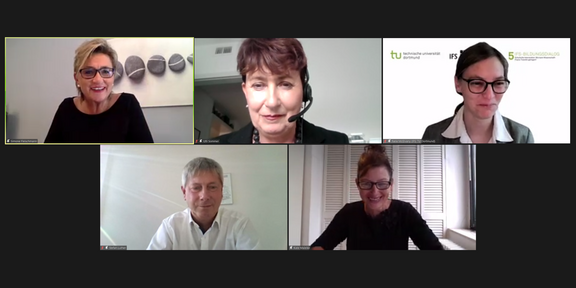5th IFS Education Dialogue on School Interventions
- Events
- News

When (educational) practice and (educational) research benefit from each other, one can speak of a successful interplay between science and practice. However, the question of how to improve transfer processes is complex. It is therefore important to discuss which adjustments need to be made in order, for example, to be able to make greater use of research findings in the everyday school lives of students and teachers. Nele McElvany, Executive Director at the Institute for School Development Research at TU Dortmund University, emphasizes: "The balancing act between theory and practice is a topic that is always topical in the field of educational research. The goal is to build bridges between the latest scientific findings and practice." School interventions and the implementation of scientifically based findings should, it became clear during the conference, serve to optimize school educational processes. However, it also became apparent that innovative transfer strategies and promising perspectives for the future are needed and that transfer processes must be systematically considered from the beginning when projects are developed.
Science-practice transfer: Between success and challenges
At the 5th IFS Education Dialogue, various experts presented different findings and experiences from intervention and implementation studies and discussed strategies and concepts related to fruitful science-practice transfer. The speakers also identified challenges that hampered science-practice transfer in both educational research and educational practice. For example, the creation of necessary framework conditions or the provision of resources were identified as relevant adjusting screws for the success of science-practice transfer. For example, it became clear that the framework conditions for school administrators would have to be improved, since they play a central role in school development processes. For successful transfer processes, school administrators need the necessary room for maneuver, the time, and the necessary leadership skills. However, one thing became impressively clear during the IFS Education Dialogue, as educational researcher McElvany summarizes: "Optimizing the interplay between educational research, educational policy and educational practice is an important undertaking. Our goal should be to strive for a long-term and interlocking science-practice transfer - because ultimately, everyone benefits."
Many thanks to all speakers for the exciting insights!






![[Translate to English:] [Translate to English:]](/storages/ifs-ep/_processed_/3/0/csm_iStock-1180187740_Orbon_Alija_bc1514e180.jpg)